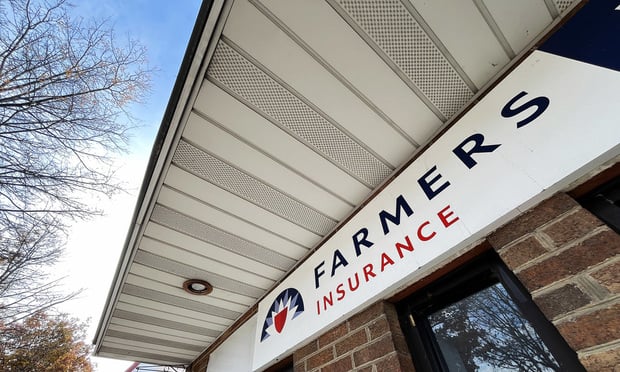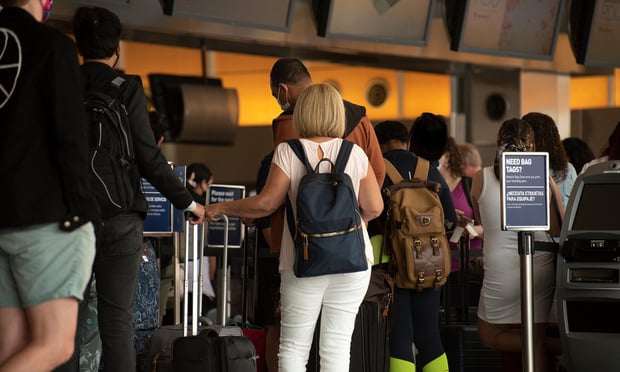Emotional. Tense. Depressed. Confused. These are but a few adjectives that describe a catastrophe victim in the aftermath of a disaster. Adjusting a claim for an insured facing these circumstances requires attentiveness amidst irrational behavior and the ability to understand every individual's needs and expectations in order to achieve success.
This is especially true when it comes to arranging temporary housing and additional living expenses (ALE). According to the Federal Emergency Management Agency (FEMA), more than 101,900 people were being housed temporarily in 37,745 FEMA-provided travel trailers and mobile homes as of July 7, 2006. Those are staggering numbers, especially considering that the figures take into account Hurricane Katrina victims only.
A glance at this issue's directory reinforces the fact that there is no shortage of companies willing to take on the task of providing shelter for victims and put their heads back into beds. Where the claim adjuster fits in is the question at hand.
Valuable Contributions
More and more, the charge of finding temporary housing in disaster situations is a task not necessarily handled by field adjusters. If this is the case, basic laws of supply and demand dictate that in a situation where extreme destruction takes place with greater frequency, more companies will be needed to find suitable shelter for victims. Can third-party housing providers help fill this expanding gap and provide an effective response, which in turn will help adjusters and insurance carriers keep claimants satisfied?
Maybe. In situations such as post-Katrina, most first-responding adjusters are independents. Since many independents live in areas far removed from the disaster areas where they are adjusting claims, they often have little working knowledge of local temporary housing resources. Not to mention that after catastrophes such as hurricanes, very few housing options are available because of the extent of damage and destruction. Thus, it is not uncommon for adjusters to direct claimants to find a place on their own and then inform their insurance companies about it so ALE can be considered and processed.
Claim adjusters are responsible for tracking and reimbursing the costs that go above and beyond an insured's typical living expenses, so it seems that they and their carriers would have a vested interest in locating appropriate housing that matches a policyholder's current standard of living while at the same time staying within a reasonable budget. Why, then, is the task given to the victims who no doubt are coming to terms with a life-changing experience? According to one temporary-housing provider, it all boils down to economics.
“Some of the biggest challenges have come from insurance companies focusing on cost-cutting,” said Jim Conway, president of Disaster Services, a temporary-housing provider. “In doing that and focusing on the bottom line, they may be bypassing normal temporary-housing providers. They would either ask the policyholder to try to secure temporary housing on their own or try to find something in-house rather than going to a third-party vendor.”
Devil in the Details?
There are risks when interventionists outside an affected area attempt to dictate temporary housing arrangements without local knowledge. The difficulty in providing it en masse following a large-scale disaster is evident when analyzing the scrambling by the government that took place following Katrina. A variety of options were implemented shortly after the devastation became apparent, including mobile homes, trailers, and perhaps most memorable (and controversial), cruise ships. The expression, “haste makes waste” exemplified U.S. Senators Barack Obama and Tom Coburn's reactions post-Katrina.
“When the federal government would actually save millions of dollars by forgoing the status quo and actually sending evacuees on a luxurious six-month cruise it is time to rethink how we are conducting oversight,” said Obama and Coburn, in a joint statement. “A short-term temporary solution has turned into a long-term, grossly overpriced sweetheart deal for a cruise line.”
It was reported that most residents viewed the ships as dead ends in terms of finding permanent housing and job opportunities. Thus, they rarely were even half full during the six-month stint they were leased. Would the reported waste and fraud have been mitigated if the government had worked with a housing provider more familiar with the area?
Making Preparations
Adjusters should be able to give claimants more support than simply telling them to call FEMA for a trailer. First and foremost, recognize that you are dealing with people who may not be able to think clearly or act decisively. Be able to answer questions over and over again and be prepared to explain why one temporary housing solution could be better for one individual's circumstances over another. Try to monitor claimants' situations once temporary housing is established to build relationships and let them know there is support.
Most importantly, be prepared to explain policy and why ALE only will be given for expenses above and beyond normal living costs. “The ALE issue is one of the toughest to address in any claim and it is compounded immensely during [an event like] Katrina,” said Kevin Hromas, an independent adjuster who has handled many catastrophe claims in the Gulf region last year. “The main thing is that the policy coverage states that coverage is for [policyholders] to maintain a reasonable standard of living and that the policy picks up the additional costs involved for you to do that. If I live in a five-bedroom mansion on the water in Biloxi, my standard of living is not a FEMA trailer parked in the yard. The policy won't cover that diminishment of your standard of living, just the actual costs involved.”
With all the confusion and uncertainty facing claimants, adjusters who can help arrange temporary housing and answer as many questions as possible about the options available will get their claims started on the right foot.
Want to continue reading?
Become a Free PropertyCasualty360 Digital Reader
Your access to unlimited PropertyCasualty360 content isn’t changing.
Once you are an ALM digital member, you’ll receive:
- Breaking insurance news and analysis, on-site and via our newsletters and custom alerts
- Weekly Insurance Speak podcast featuring exclusive interviews with industry leaders
- Educational webcasts, white papers, and ebooks from industry thought leaders
- Critical converage of the employee benefits and financial advisory markets on our other ALM sites, BenefitsPRO and ThinkAdvisor
Already have an account? Sign In Now
© 2024 ALM Global, LLC, All Rights Reserved. Request academic re-use from www.copyright.com. All other uses, submit a request to [email protected]. For more information visit Asset & Logo Licensing.








